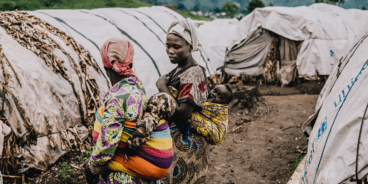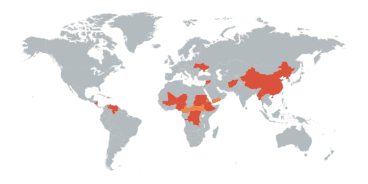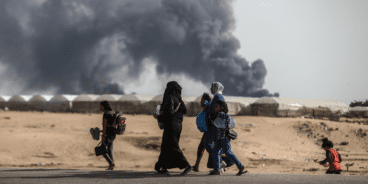
Peace Versus Justice in Syria’s Civil War
Op-ed by Dr. Simon Adams in the Huffington Post
The bitter street fighting that has devastated parts of Damascus and Aleppo represents yet another ugly turning point in Syria’s tragedy. What started as a democratic uprising a year and a half ago is now clearly a civil war.
It is shameful that after seventeen months of relentless bloodshed and an estimated 20,000 dead, the UN Security Council’s response has amounted to nothing more than a few tersely worded press statements and a crippled observer mission. On three separate occasions Russia and China have vetoed attempts by the Council to hold accountable those responsible for mass atrocities in Syria. Each time President al-Assad has taken this as a renewal of his licence to commit crimes against humanity.
In the town of Houla 108 villagers (including 49 children) were massacred by pro-government “Shabiha” militias during June. In the aftermath, some Western governments declared that it was only a matter of time before Assad fell. But the idea that the Syrian regime would simply collapse under the weight of angry press releases and the consequences of its crimes was wishful thinking. There are a number of historical examples of governments who have successfully crushed rebellions, committed atrocities, and gotten away with it. The current Assad’s father killed up to 30,000 people at Hama in 1982 and still ruled for another 18 years.
Faced with political deadlock at the UN Security Council, a number of Arab states have chosen instead to fund the armed opposition groups battling the Syrian security forces. Their petro- dollars have greatly enhanced the rebel’s lethality, despite a lack of heavy weaponry. Several Western democracies, fearful of becoming directly embroiled in another Middle Eastern war, have confined themselves to providing clandestine advisors and “non-lethal material assistance.” With Lebanon and Iraq already simmering, the “balance of consequences” argument against any sort of direct military intervention is still a powerful one.
Meanwhile Iran allegedly continues to provide the Syrian regime with crucial support and the Russians have sent the bullets, guns, tanks and attack helicopters that enable the killing. Russia wants to protect its waning influence in the region. Iran wants to project its rising power. Both want to teach the West a lesson.
So what’s next? Speaking to those inside Syria, one is cautioned not to be deceived by the flames of Damascus. Assad retains the support of many Syrians (especially those from minority communities) and the military balance of power is still overwhelmingly in the government’s favor. Defections, desertions and assassinations are increasing, the regime is weakening, but Assad is far from defeated.
In the absence of a united UN Security Council willing to act to end the killing, members of Assad’s inner circle still believe they can militarily crush all those who have risen against them.
For the Alawite elite who control the army, the stakes could not be higher. Victory means they continue to rule over a broken country. Defeat means the end of the Alawite dictatorship.
With an eye to the future, some concerned governments are already talking about a necessary trade-off between peace and justice. As Damascus burned, the Arab League renewed its offer of “safe exit” to Assad and his family if he agreed to step down. This would also enable Russia and Iran to abandon an individual liability rather than an allied government. But the time for Assad to opt for a peaceful transition into luxurious exile has passed. For now, both the government and the opposition are committed to a military solution to Syria’s crisis.
But that doesn’t mean nothing can be done. First, the international community needs to continue to impress upon the Syrian opposition that outside support (political or otherwise) is dependent upon actively preventing reprisals against Alawites as Alawites. The ongoing fracturing of Syria along sectarian lines, with targeting of suspect communities on both sides, will only deepen Syria’s misery and lead to further atrocities.
Secondly, it remains essential to hold accountable those responsible for crimes against humanity. The principal criminals have been pro-government forces, but armed rebels have also committed human rights abuses. Accountability should not be negotiated away as part of any “end game” political manoeuvres. With or without Assad, regardless of whether the current regime crumbles, is overthrown or even in the unlikely event that it conducts some sort of controlled transition to a new political order, Syria will still need to reckon with the legacy of mass atrocities.
If we have learned anything from the various “peace processes” of the last twenty years it is that without justice there can be no lasting peace. If the international community is unwilling to hold Assad, his ministers and his senior security officers accountable, then there is no incentive for those who eventually replace him (whether they be rebels, defectors or Assad loyalists) to act any differently.
Although the UN is locked out of finding a solution to this crisis for the moment, it should still deploy the necessary resources to monitor, investigate and accumulate evidence. Having failed to prevent a civil war in Syria, having abdicated its responsibility to protect the Syrian people from crimes against humanity, the very least the UN Security Council can do now is ensure that one way or another Assad and his generals eventually find their way to The Hague.
Related Content


